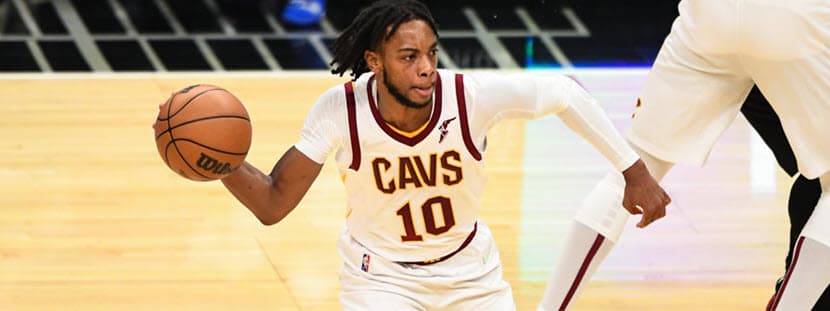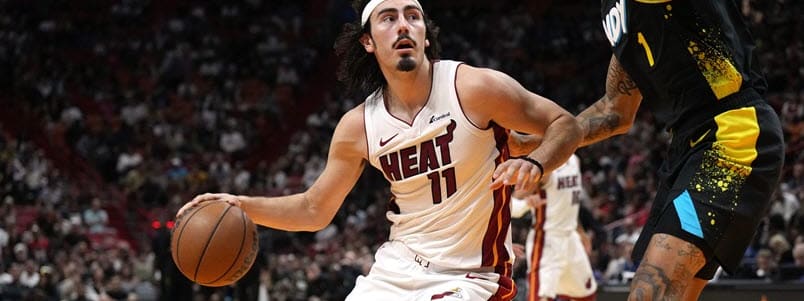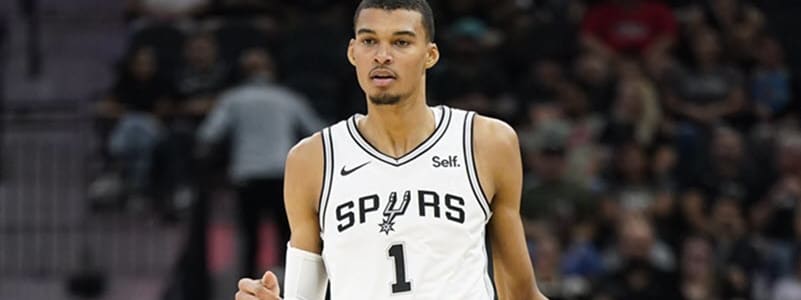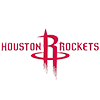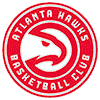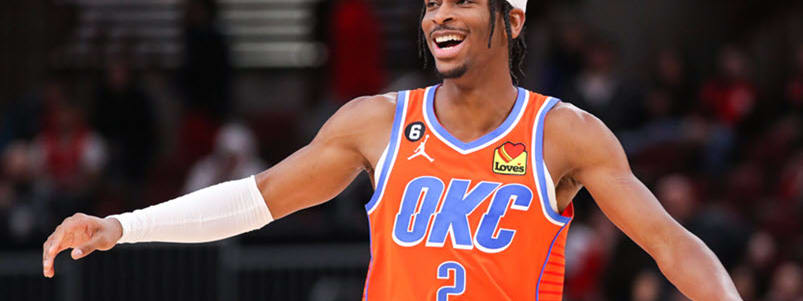Recent RotoWire Articles Featuring Cody Zeller
See More
Zeller's injury woes continued last year, and he hasn't appeared in 60 games in a season since 2016-17. His fantasy value also declined for a second straight season as the Hornets explored other options at center, namely P.J. Washington. In 20.9 minutes per game, Zeller averaged 9.4 points, 6.8 rebounds and 1.8 assists. He's almost purely a screen-and-roll center who can throw down some impressive dunks when given a runway, though there's been a half-hearted attempt to turn him into a stretch five, with the center going 28-for-125 (22.4 percent) across the past three seasons. This season, Zeller is experiencing his first change of scenery as a pro, as he signed a one-year deal with the Trail Blazers. There, he'll back up starting center Jusuf Nurkic, who's had injury issues of his own lately. Zeller should continue seeing roughly 20 minutes per game. He's completely avoidable in standard leagues, but he makes for an intriguing option in deep leagues or best ball formats as someone to potentially pair with Nurkic in a draft in case the starter gets hurt. Zeller would presumably be worth a roster spot in fantasy if he gets an extended stretch of starts, as he's averaged 12.2 points on 56.4 FG%, 8.5 rebounds, 2.2 assists and 1.2 blocks in games where he's seen minutes in the 30s.
In his seventh season (all with Charlotte), Zeller came through with career highs in points (11.1) and rebounds (7.1) despite logging just 23.1 minutes per contest. He also compiled 10 double-doubles. Zeller's shooting splits are similar to those of a traditional center, as he shot 52.4 percent from the floor, 68.2 percent from the charity stripe and 24.0 percent from downtown on very limited attempts. Charlotte's frontcourt rotation was quite a headache in 2019-20, as head coach James Borrego utilized all three of Zeller, Bismack Biyombo and Willy Hernangomez throughout the season. Fortunately for his fantasy managers, Zeller was least affected by the center carousel, as his minutes and statistics weren't much different between his 39 starts and 19 games off the bench. Despite the promising campaign, Zeller has topped out at 27.8 minutes per game in his career and has only logged more than 25 minutes per contest twice in seven years. If his playing time can normalize and become more consistent, Zeller could see his value rise, though he's more of a later-round guy in points leagues with less appeal in category leagues.
Zeller will anchor the frontcourt of a rebuilding Hornets team in the post-Kemba-Walker era. The big man averaged 10.1 points, 6.8 rebounds, 2.1 assists and 1.6 blocks/steals per contest last season, playing just 25.4 minutes in 49 games. Zeller's health is a big concern heading into the 2019-20 season, as he's now appeared in just 82 games combined over the last two seasons and failed to finish a full season since his rookie year in 2013-14. The Hornets' frontcourt roster still includes Bismack Biyombo and Willie Hernangomez, who may take time away from Zeller. Biyombo is the better rim-protector and overall defender, and Hernangomez is a quality rebounder. Despite the likely competition for minutes, Zeller is still projected to be the starting center. And without leading scorers Kemba Walker and Jeremy Lamb, Charlotte will have to get the most out of every player on the roster, meaning a possible bump in production if he can stay on the court. Zeller is not an exciting fantasy option, but the lack of depth on the Hornets roster paired with a potential starting job makes him a value option in later rounds of drafts.
Last year, between injuries and the presence of Dwight Howard, Zeller played a career-low 627 minutes. Considering the situation, it’s tough to even put real stock in Zeller’s fifth season. However, what can be extracted is Zeller’s struggle to stay on the floor. Over the past four campaigns, the Indiana product is averaging 57.5 games played. So, even optimists about his upside have reason to give pause. While not a volume player by any means -- 9.5 points, 6.4 rebounds and a combined 1.8 steals/blocks during his age 23 and 24 seasons -- he reached a career-high 57.1 field-goal percentage during 2016-17, boosting his Fantasy value. It’s likely Zeller begins the 2018-19 campaign as the starter, though he’s never reached higher than 27.8 minutes per game -- another factor that limits his potential in addition to his injury history. Plus, with the myriad of other center options on the Hornets (Frank Kaminsky, Willy Hernangomez, Bismack Biyombo), there’s plenty of other players to turn to if Zeller isn't playing up to par.
Zeller continued to show improvement in his fourth year with the Hornets and despite being limited to 62 games because of quad injury, he still put together career-highs in minutes, points scored, rebounds, steals, blocks and field goal percentage. The bad news for Zeller is he'll likely be losing his starting role going into the 2017-18 campaign. Charlotte traded for Dwight Howard in the offseason and while nothing is official at this point, Howard is the favorite to start at center. That means Zeller will be the first big off the bench, and it's going to be tough for him to match his 27.8 minutes per game from last season. A more likely outcome is a slightly reduced role similar to the workload he was handed in his second and third years in the league. That said, Howard has a lengthy injury history, so Zeller will likely fill in as the starting center if anything does happen to the former All-Star.
Zeller took a step forward in this third NBA season, averaging career highs in scoring (8.7 points per game), rebounding (6.2), steals (0.8), blocks (0.9), minutes (24.3) and field-goal percentage (52.9%). The former lottery selection moved into the starting lineup at the beginning of December and would hold onto the designation for the rest of the season, finishing with 60 starts in 73 games. Entering 2016-17, Zeller is again expected to start at center, but he’ll face competition from veteran Roy Hibbert for those duties. In addition, Frank Kaminsky and Spencer Hawes are around to vie for minutes in the frontcourt, but unlike those two, Zeller is expected to play almost exclusively at center, given his limited shooting range. While Zeller was one of 17 qualified players to average at least 12 points, nine rebounds, one block and one steal per 36 minutes last season, Charlotte’s frontcourt depth will likely prevent him from consistently eclipsing 30 minutes in games.
In his second season, Zeller averaged 7.6 points, 5.8 rebounds, 1.6 assists, 0.5 steals, and 0.8 blocks in 24 minutes per game through 62 games. He shot 46 percent from the field, 100 percent from downtown, and 77 percent from the free-throw line. It was only one three-pointer, but Zeller, who turns 23 in October, does have some nice range for a 7-0 forward. The Hornets let Bismack Biyombo sign elsewhere, drafted Frank Kaminsky and acquired Spencer Hawes this summer. Hawes has proven his inability to play power forward defensively, thus likely eliminating him from the starting lineup discussion. However, it's possible Kaminsky, whom the Hornets reportedly turned down multiple first-round picks for, could draw the start alongside Al Jefferson. Yet, Michael Kidd-Gilchrist is also capable of playing the four, and Marvin Williams could be in the conversation. Regardless of who earns the starting nod alongside Jefferson, Kidd-Gilchrist, Kemba Walker, and Nicolas Batum, Zeller will have to work hard to maintain his minutes load from 2014-15.
It was a tale of two seasons for Cody Zeller last season who was shooting a woeful 38 percent heading into the All-Star break, but his monthly scoring average increased consecutively in February, March, and April on his way to shooting 51 percent in the second half of the season. Because of that — and the departure of Josh McRoberts — Zeller could be considered one of the bigger sleepers in the league. He can play both positions up front and should be starting alongside Jefferson. Do keep in mind Zeller is still just 21 years old and started just three games in his rookie season.
Zeller will likely start for the Bobcats during the 2013-14 season and for good reason. He averaged 16.3 points, 9.3 rebounds, 1.5 assists and 0.8 blocks over 32 minutes of playing time throughout four of the NBA Las Vegas Summer League contests. If Zeller is able to continue knocking down perimeter jumpers and finishing strong around the rim like he did in college, he will most likely be one of the Cats' top players right away.

